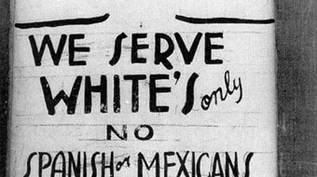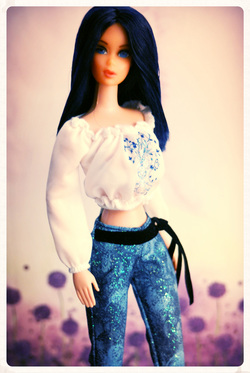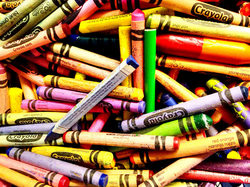|
Amanda Smera Welsh
If you are a writer, especially a writer in the middle of a graduate program, you will undoubtedly encounter many craft materials through the course reinforcing the need to establish a discipline to your own writing. Sometimes, they can sound a little delusional, which was precisely my reaction when I read Robert Olen Butler’s “From Where You Dream.” It truly is the most overtold advice any writer has heard before: “You may not be ready to write yet, but when you’re in a project you must write every day. You cannot write just on weekends. You cannot write this week and not next week; you can’t wait for the summer to write. You can’t skip the summer and wait till the fall. You have to write every day. You cannot do it any other way. Have I said this strongly enough?” Yes you have, dude, now please shut up!
0 Comments
 Via Pixabay Via Pixabay by Megan Kiger So, I’d call myself a liar. Used-to-be outstanding liar, but maybe just above average now. My intentions are never anything more than comedic (or dramatic) relief. We all love drama, and we all lie about that too. When I was little, I’d come up with intricate stories to cover my ass when I was in trouble or embarrassed (or just to make things interesting, you know?). I had a crush on a boy named Zach when I was ten. He had this ashy kind of blond hair and green eyes that I was obsessed with. I asked him if he wanted to swing with me at recess and he said no. He actually pretty rudely refused and laughed at me with his friends. I remember my throat swelling while I tried to keep the hysterics contained to my stomach. by Mark Krupinski  “Anything and everything can be art!” is, I feel, a deceptively sinister phrase. You could substitute the rather generic “art” in this situation with your medium of choice, be it poetry, film, literature, or what have you, and the situation remains unchanged. It seems innocuous at first, even encouraging. Anything can be art; no matter how lost you may feel, no matter what vision you lack, your expression has merit. You exist and you are valid. As someone who has spent more time than perhaps he’d like to admit pacing fretfully to and fro, hyperventilating into a McDonald’s bag because the words don’t sound the way they’re supposed to, I understand. Writing is a painful, clumsy, often fruitless task, so positive affirmation is as valuable as it is rare. But there’s a danger in creating that sense of comfort, tossing standards by the wayside in favor of blind positivity and confidence. The idea that everything, every single careless, thoughtless, witless, messy, wishy-washy, meandering, pointless thing is art gives me pause.  Photo: 12news Photo: 12news I’ve taught freshman composition courses for almost two years now, expecting my diverse body of students from multicultural backgrounds to all coalesce and perform to one standard above all others: White Vernacular English (WVE) or White American Vernacular English (WAVE). As writers, we pride ourselves on being open-minded yet authentic, and we hope our students do the same—as long as they adhere to what we consider valid style of writing. Why have the rigid, outdated principles the foundation of college composition was built on not shifted to accept other vernaculars?
|
Archives
July 2024
Categories
All
|
|
Glassworks is a publication of Rowan University's Master of Arts in Writing 260 Victoria Street • Glassboro, New Jersey 08028 [email protected] |
All Content on this Site (c) 2024 Glassworks
|



 RSS Feed
RSS Feed
